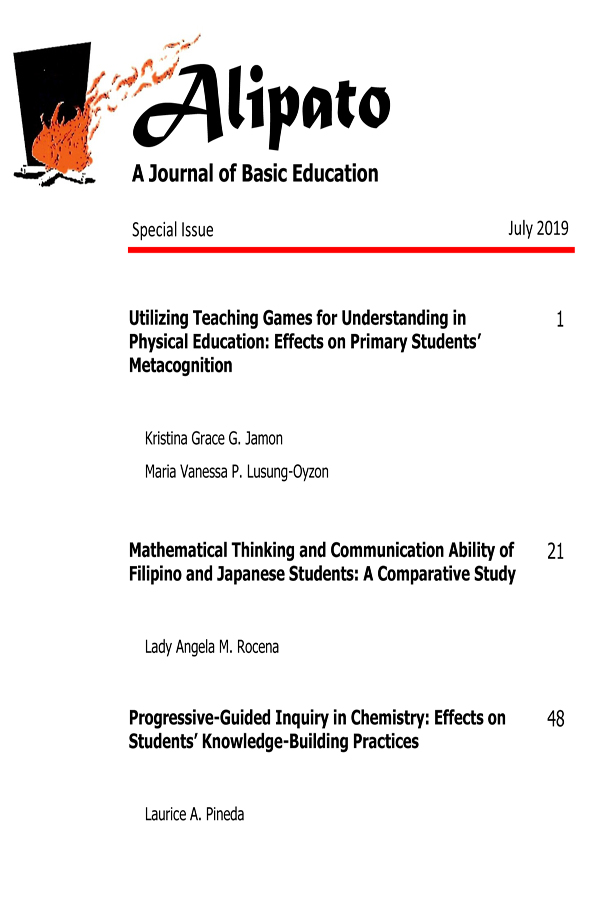Mathematical Thinking and Communication Ability of Filipino and Japanese Students: A Comparative Study
Abstract
A remarkable gap between the mathematics achievement of Filipino and Japanese students, favoring the latter, is evident in the results of international comparative studies. To understand this gap and later suggest ways to improve the performance of Filipino students, this research investigated the mathematical thinking skills of Filipino and Japanese learners by scrutinizing their solutions in open-ended questions. The students’ mathematical communication ability, being a fundamental tool in mathematics learning, was also studied. Furthermore, this paper also examined the relationship between mathematical thinking and mathematical communication ability.
Seventy Grade 7 Filipino students and 70 Grade 7 Japanese students participated in the study. The samples were matched based on a culture-fair intelligence test. Data analysis revealed that Japanese students outperformed Filipino students in both mathematical thinking skills and mathematical communication ability. Moreover, statistical tests prove that mathematical thinking predicts mathematical communication ability. Qualitative analysis of students’ responses shows that the groups differ in the mode they represent knowledge, their flexibility in solving, and their focus when communicating their thoughts. Triangulation through analysis of textbooks, modules, and sample tests, and classroom observations was done.
Implications on mathematics teaching, learning, and assessment were discussed.
Key words: mathematical thinking, mathematical communication, mathematics education, Japanese mathematics education, Philippine mathematics education



